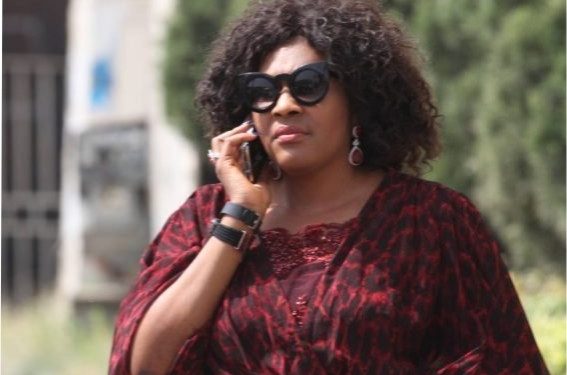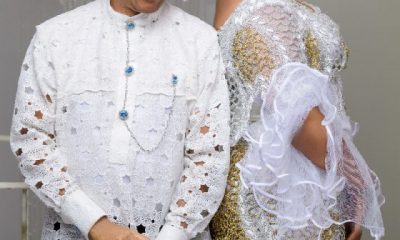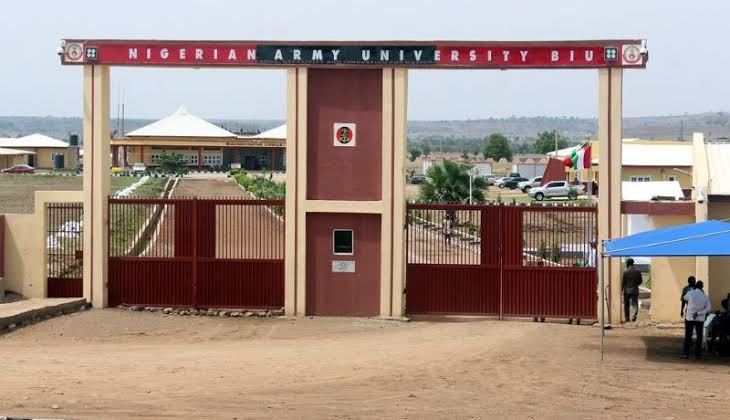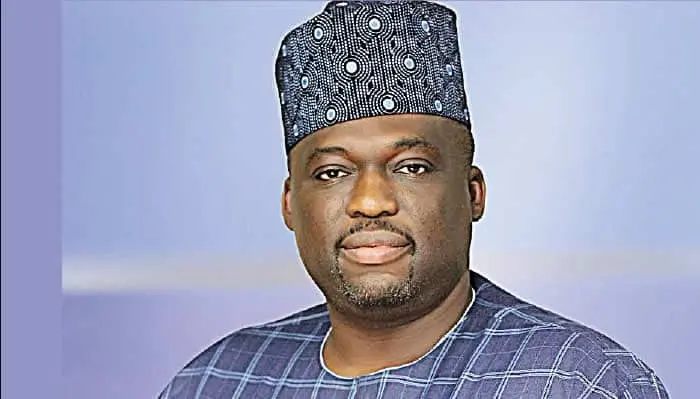Mr. and Mrs. Ekeoma further instructed him and one Ugochukuwu Onwugbuna to form a firm in Liberia called Dexter Oil Limited to conduct oil trading transactions.
Ngozi Ekeoma, CEO of Nepal Oil and Gas Services Limited, might face jail time for allegedly defrauding the government of $10 million in subsidies.
This is in response to a recent plea by Chukwuemeka Ekwnuife, a former banker, to the Honorable Minister of Justice and Attorney General of the Federation (AGF), Abubakar Malami SAN, over the alleged scam, ENigeria Newspaper understands.
The former banker requested the AGF to compel the Economic and Financial Crimes Commission, EFCC, to prosecute Ekeoma and submit its previously completed investigative report on the oil marketer, according to this publication.
“Re: Petition against Mrs Ngozi Ekeoma and Mr Eme Ekeoma of Nepal Oil and Gas Services for theft, fraud, and collecting over $10 million under the petroleum subsidy scheme,” Ekwnuife said in a letter dated October 12, 2020.
According to him, the EFCC has been dragging its feet on the petition written by his attorneys, George Ikoli and Okagbue, dated October 22, 2018, and his letter of reminder of supplementary on the fraudulent activities by Mrs Ekeoma and her husband for about two years.
While expressing his discontent with the EFCC’s handling of his petition, Ekwnuife stated that he had promised to provide more information about the alleged subsidy transaction that occurred in Liberia and Nigeria in 2014, but that no invitation had been given to him.
“I’ve been on trial for claims relating to these transactions that were twisted to accuse me, and I’ve decided to tell the world the truth about my ordeal, but the EFCC has opted not to perform its job, with all due respect, and come out with its conclusions.
“For the umpteenth time, I have decided to file this petition to request an investigation into my complaint against Mrs Ngozi Ekeoma, assuming that this will yield the desired result. The exemplary integrity the Ministry of Justice and the office of the AGF have demonstrated since assumption of leadership has given me the confidence to send this letter,” Ekwunife continued.
The former banker, who left Sterling Bank in 2014, told the Lagos Special Offences Court in Ikeja that the businesswoman pleaded with him to join her company and help her issue credit to her businesses.
Mr. and Mrs. Ekeoma further instructed him and one Ugochukuwu Onwugbuna to form a firm in Liberia called Dexter Oil Limited to conduct oil trading transactions.
In an earlier petition to the EFCC, through his solicitors, George Ikoli and Okagbue, dated October 22, 2018, the petitioner additionally included documentation demonstrating Mrs Ngozi Ekeoma and her companies’ fraudulent operational activities (and received on Nov. 6, 2018).
The suit states, “The records represent evidence of the transfer of Premium Motor Spirit (PMS) intended for consumption in Nigeria to boats for later sale overseas.”
Meanwhile, Ekwunife is facing an eight-count allegation of stealing, together with Structured Energy Limited, for taking a total of N168.5 million from Mrs Ngozi Ekeoma’s enterprises.
The EFCC claims that Ekwunife stole the money from M.R.S Oil and Gas, Exit Energy Limited, Globin Oil and Gas Limited, Bond Energy, and Greenage Energy Limited, all of which are Nepal Oil and Gas Limited properties, at various periods in 2014.
However, in his defense, Ekwunife claimed that Mrs. Ekeoma, the owner of Nepal Oil and Gas Limited, used him to arrange fake papers in Liberia in order to receive money from the Federal government through a subsidy system.
Mrs Ekeoma testified that Ekwunife assisted her in registering many companies in Liberia to enable her to import various petroleum goods, mainly Premium Motor Spirit (PMS), under the petroleum scheme fund (subsidy scheme) with the FG.
According to the ex-banker, the oil marketer used him to facilitate bogus papers in Liberia in order to steal millions of Naira from the Nigerian government through the subsidy scheme.
“I assisted her in setting up several firms like Structured Energy Resources Limited, Dexter Oil Limited, Ritrak Supply and Trading Limited, Gulf Trading and Shipping Limited – all registered in Liberia,” Ekwunife stated in his evidence.
“At various times, these firms were utilised by the Federal Republic of Nigeria to carry out transactions and documentation relating to subsidies. We created supporting documentation such as the Bill of Laden, product recertification, quality certificate, and certificate of origin.
These documents were created outside of Nigeria’s borders and used for trades that never took place in the country. For non-live trades, the documentation was completed in Liberia (feasible).
“We (referring to himself and Mrs Ngozi Ekeoma) exploited these documents to carry out fraudulent activities in Nigeria by using documents drafted outside the nation to conduct commerce that was not supposed to take place,” he said.
Another witness, Mr Anthony Abraham, had previously testified in court that there is a tie between a former banker, Chukwuemka Ekwunife, and a businesswoman, Mrs Ngozi Ekeoma, in an alleged subsidy scam that occurred in Liberia and Nigeria in 2014.
Mr. Abraham, a financial consultant, said he met Ekwunife in Liberia while attempting to open accounts and register several businesses.
Mr Abraham stated that he was introduced to Ekwunife by a former client and a friend, but that he couldn’t recall who that person was.
Mrs Ekeoma Ngosi, the financial expert said, was a friend long before he met Ekwunife, whom he only met while working for a bank in Liberia, First International Bank.
“I met the defendant, Chukwuemeka Ekwunife, while working in Liberia for a bank named First International Bank. He came to Liberia to do business, intending to open accounts and register several firms. He was referred to me by a former client and friend of mine, whose name I don’t recall,” he explained.
The witness stated he couldn’t remember if that friend was Mrs Ngozi Ekeoma when asked.
The defense counsel, on the other hand, handed the witness a document containing multiple emails of transactions that he sent to Ekwunife and copied Mr and Mrs Ekeoma, and asked him to identify it.
The witness identified the emails and said, “Yes I sent these mails to Tochukwu71@yahoo.com (belonging to Ekwunife) and I copied three others namely; Ekeoma_Eme@hotmail.com (belonging to Mr Ekeoma), Ibeyanma72@yahoo.co.uk. (belong to Mrs Ngozi Ekeoma) and U go.na@gmail.com (belonging to Mr Ugochukwu Onwuegbuna).
“The emails were sent as a result of transactions in an account, Dexter Oil Limited, which was opened by Mr Emeka in Liberia and the account was opened with the same name.
“After it was opened, I wasn’t the direct account officer but an officer was assigned. Though I had an overview of the transactions.
The account received both inflows and outflows. Mr Emeka was the sole signatory of the account and instructions would normally come from him to run the account.
“I was asked to copy Mr Ugochukwu, who is also a Director in Dexter just as Ekwunife, and then copy both Mr and Mrs Ekeoma in each mail”.
When asked how he knew Mrs Ekeoma, he replied, ” I’ve known her for many years – long before I met Ekwunife. I’ve never had any business transactions with Ngozi before I met Ekwunife. But Mrs Ngozi Ekeoma has a relationship with the defendant, Ekwunife “.
When asked why he copied Mrs Ekeoma if there was no business relationship, the Consultant replied, “I was asked to copy these people and I literarily don’t know all of them”.
The matter was adjourned till September 30 for continuation of defence.

 Society6 years ago
Society6 years ago
 Society3 years ago
Society3 years ago
 Society3 years ago
Society3 years ago
 News and Report5 years ago
News and Report5 years ago
 News and Report6 years ago
News and Report6 years ago
 News and Report5 years ago
News and Report5 years ago














